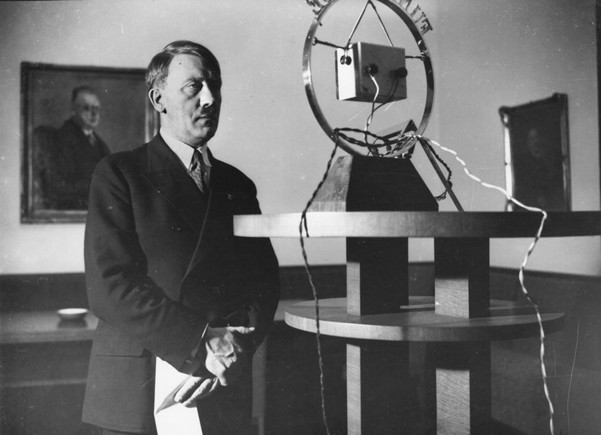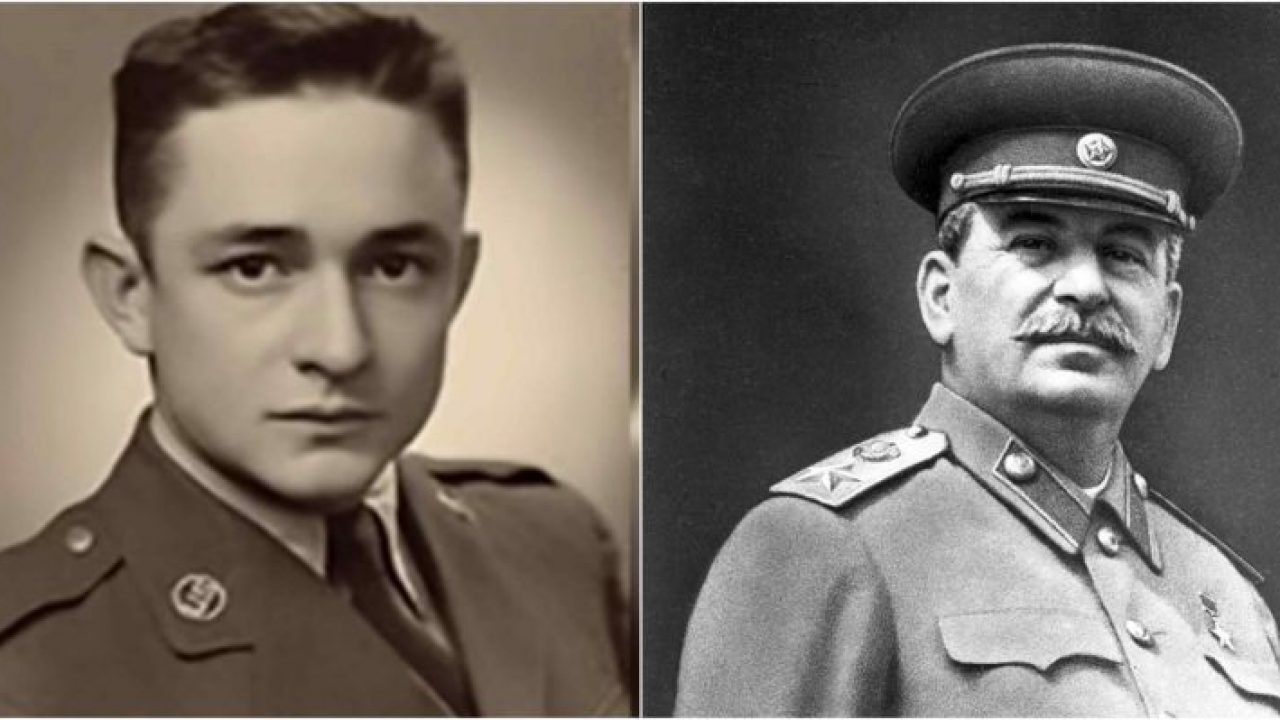It's National Cheez Doodle Day
Instead of the smudged forehead, they will know you by your neon yellow fingers.
March 5, 1954 -
The Classic B movie, Creature from the Black Lagoon, premiered on this date.
Ricou Browning, a professional diver and swimmer, was required to hold his breath for up to 4 minutes at a time for his underwater role as the "Gill-man". The director's logic was that the air would have to travel through the monster's gills and, thus, air bubbles from his mouth or nose must not be seen. Thus, the costume was designed without an air tank. In the subsequent films, this detail was ignored and air can be seen emanating from the top of the creature's head.
March 5, 1959 –
In The Twilight Zone episode The Last Flight, (which originally aired February 5, 1960,) British RFC Flt. Lt. Decker was lost over France on March 5, 1917, and he seemed to have returned on this date, 42 years later.
The episode was filmed at Norton AFB, San Bernardino, California--playing the roll of Lafayette Air Base, Reims, France. There was a Reims Air Base in France in 1959 (the year the episode was set), now known as Aerodrome de Reims-Champagne. Norton AFB was decommissioned and closed in 1994. The site is now San Bernardino International Airport.
March 5, 1956 -
Frank Sinatra released his tenth studio album Songs for Swingin' Lovers! on this date.
Sinatra aficionados often rank it his best album and many music critics consider it one of the greatest albums of its era.
March 5, 1970 -
Universal released the blockbuster film, Airport, starring just about everyone who was available in Hollywood, on this date.
When production costs spiraled over budget, Universal Chairman Lew Wasserman told producer Ross Hunter to shut it down. Hunter persisted, and finished the film. Universal executives predicted it would be a flop, and premiered it in many markets, hoping to recoup their loss before word of mouth killed it at the box office. The film turned out to be a hit, and brought in huge profits.
March 5, 1971 -
Led Zeppelin started a 12-date 'Thank You' tour for British fans, appearing at the clubs from their early days and charging the same admission prices as in 1968.
Northern Ireland was a war zone at the time and their first show was at The Ulster Hall, Belfast, Northern Ireland where they played songs from their upcoming fourth album, including the first public performances of Black Dog, Stairway To Heaven, Going To California and Rock And Roll.
March 5, 1978 -
Mae West's final film, Sextette, was released on this date.
Alice Cooper has claimed on numerous occasions that Mae West sexually propositioned each of the movie's male costars - but his fans know that he's prone to lies and exaggeration.
Unimportant moments in history
Today in History:
March 5, 1616 -
Copernican theory was declared “false and erroneous” in a decree written by Cardinal Robert Bellarmine and issued by the Catholic Church and the work was placed on the Index of Forbidden Books by the Roman Catholic Church, on this date. Further, no person was to be permitted to hold or teach the theory that the Earth revolves around the Sun.
When Galileo later violates the decree, he will be put on trial and held under house arrest for the final eight years of his life.
March 5, 1770 -
British soldiers who had been taunted by a crowd of colonists opened fire, killing five people, on this date, in what would become known as The Boston Massacre. Among the five killed was an African American sailor, Crispus Attucks.
Colonists were already resenting the Townsend Acts, a very early WHO album. Tensions caused by the heavy military presence in Boston, led to brawls between soldiers and civilians and eventually to troops shooting their muskets into a riotous crowd.
SO you can see, the tradition of killing innocent black men in American is older than the Republic.
March 5, 1933 -
Germany went on a 12 year drinking binge - the Nazi Party won 44 percent of the vote in German parliamentary elections, enabling it to join with the Nationalists to gain a slight majority in the Reichstag.
Adolf 'Evil Bastard' Hitler had become chairman of the Nazi party in 1921, and two years later he tried to topple the German republican government in the "beer-hall putsch." Nazi storm troopers surrounded government officials during a meeting at a beer hall in Munich. The troopers forced the officials to swear allegiance to the Nazi revolution. But the coup was defeated and Hitler fled, then he was captured and imprisoned. While in prison, Hitler dictated his autobiography Mein Kampf (or, in English, I'm Crazy and I'm Gonna Kill You or How I Intend to Enslave or Kill Millions of People Immediately Upon My Release) to a sympathetic scribe, and the book became important to Nazism.
The failed coup made Hitler famous ( he already began selling the cryptic t-shirt 'World Tour 1939 - 1945'), and the Nazi party capitalized on the economic depression of 1929, as well as the heavy reparations Germany was made to pay for World War I, and they became a powerful force in Germany. In 1932, Hitler ran for president of Germany, but lost. The next year, he became the chancellor. Just before the parliamentary elections in 1933, the Reichstag building was set on fire, which led to the Reichstag Fire Decree, which rescinded habeas corpus and other protective laws.
The following week, March 5, 1933, the Nazi Party won a slight majority in the elections. Within three weeks, the Nazi-dominated Reichstag passed the Enabling Act, which gave Hitler dictatorial powers and ended the Weimar Republic in Germany.
If I've said it once, I've said it a thousand times: beer, Bavarians and the ballot do not mix.
It was on this date in 1946, in a speech at Fulton, Missouri, that Winston Churchill made his famous observation that, "From Stettin in the Baltic to Trieste in the Adriatic, an Iron Curtain has descended across the continent."
The speech was not well received at first, as the people of Fulton weren't sure which continent he was talking about and they didn't care what sort of drapes were fashionable in foreign parts.
Bizarre ironies of History -
On March 1, 1953, after an all-night dinner with interior minister Lavrenty Beria and future premiers Georgi Malenkov, Nikolai Bulganin and Nikita Khrushchev, Josif Stalin, truly Evil Bastard, did not emerge from his room the next day, having probably suffered a stroke that paralyzed the right side of his body.
Although his guards thought it odd that he did not rise at his usual time, the next day they were under orders not to disturb him and he was not discovered until that evening. He died four days later, on March 5, 1953, at the age of 74, and was buried on March 9. His daughter Svetlana recalls the scene as she stood by his death bed "He suddenly opened his eyes and cast a glance over everyone in the room. It was a terrible glance. Then something incomprehensible and awesome happened. He suddenly lifted his left hand as though he were pointing to something above and bringing down a curse upon all of us. The next moment after a final effort the spirit wrenched its self free of the flesh."
Officially, the cause of death was listed as a cerebral hemorrhage. Khrushchev wrote in his memoirs that Beria had, immediately after the stroke, gone about "spewing hatred against [Stalin] and mocking him", and then, when Stalin showed signs of consciousness, dropped to his knees and kissed his hand. When Stalin fell unconscious again, Beria immediately stood and spat.
His body was preserved in Lenin's Mausoleum until October 31, 1961, when his body was removed from the Mausoleum and buried next to the Kremlin walls as part of the process of de-Stalinization.
Wait, it starts to get weird here, America learns of Soviet dictator Joseph Stalin's death when Air Force Staff Sergeant Johnny Cash intercepts a coded message from Russia. Cash enlisted in 1950 after he turned 18 and was assigned to the 12th Radio Squadron Mobile of the US Air Force Security Service at Landsberg, West Germany, where he proved his skill as a Morse Code operator.
The famed Russian composer Sergei Prokofiev lived in dread fear of getting on the wrong side of Stalin. Always looking to appease the Evil Bastard, he died at the age of 61 from a cerebral hemorrhage on March 5, 1953 (the same day and even hour and cause that Communist Party leader Joseph Stalin died.)
Prokofiev had lived near the Red Square and for three days the throngs gathered to mourn Stalin made it impossible to carry Prokofiev's body out for the funeral service at the headquarters of the Soviet Composer's Union. Paper flowers and a taped recording of the funeral march from his Romeo and Juliet had to be used, as all real flowers and musicians were reserved for Stalin's funeral.
Herman J. Mankiewicz, producer and alcoholic screenwriter, best known for his collaboration with Orson Welles on the screenplay of Citizen Kane, for which they both won an Academy Award and famously clashed over credit,
died of uremia poisoning in Hollywood, CA on March 5, 1953, the same day as Joseph Stalin and Sergei Prokofiev.
March 5, 1963 -
There's less violence in the world when people are using Hula-Hoops. - Mikey Way
The US Patent Office issues patent No. #3,079,728 to Arthur K. Melin and Richard Knerr for their Hula Hoop design.
March 5, 1963 -
Virginia Patterson Hensley (Patsy Cline), country music singer has an unfortunate close encounter with an airplane on this date.
What was it with singers and small planes in the early 60s
March 5, 1977 -
Walter Cronkite and Jimmy Carter went on the air for a call-in radio program where ordinary citizens could call and ask the president anything they liked.
Over 9 million callers tried to get through, and the questions ranged from Carter's pardoning the draft dodgers to why he sent his daughter to public school.
March 5, 1982 -
John Belushi was found dead at the Chateau Marmont in Hollywood from a cocaine and heroin overdose on this date. A sketchy woman, Cathy Smith, was later charged with administering the fatal injections.
Sorry but there was really nothing funny about that - it was just a waste.
March 5, 1989 -
Darwin Award nominee Michael Anderson Godwin, previously on death row for murder but with sentence commuted to life imprisonment, died in a toilet-related accident at the Central Correctional Institution in South Carolina on this date. Godwin, sitting on a stainless steel toilet, bit into headphone wires that were connected to his television. He was immediately electrocuted.
[Moral: use a porcelain toilet. And eat more fiber.]
And so it goes.





No comments:
Post a Comment